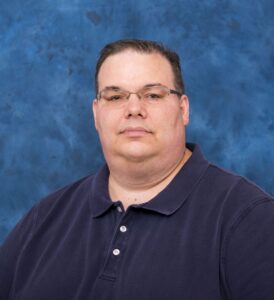Summer Working Connections week 2 virtual experience is a synchronous program. Attendees are expected to sign on and participate together in real time all week. The program will feature five separate learning tracks for IT educators.

Summer 2024 Working Connections II
Week 2: Online
A.I. Foundations
Description
This course will comprehensively survey Artificial Intelligence (AI) and Machine Learning (ML). Participants will be introduced to essential concepts and skills for understanding Artificial Intelligence and its impact. We will cover data preparation, classification algorithms, training of learning models, image processing, and natural language processing. Additionally, the course will provide a thorough overview of essential Python operations, making it accessible even to those without prior programming knowledge. Several AI tools will be introduced, including ChatGPT, Midjourney, Copilot, and MonkeyLearn.
Pre-requisites
Beginner-level Python programming (conditionals, loops, using libraries) is recommended, but not required
Textbook
None.
At-home computer requirements
- A Google account
- Strong internet connection
- For class interaction, a webcam is recommended but not required

Instructor
Wade Huber is a residential computer science faculty member at Chandler-Gilbert Community College, where he recently served on the committee developing CGCC’s Artificial Intelligence bachelor’s degree. He has over 25 years of experience as a software engineer in the telecom, semiconductor, and medical device manufacturing industries. During this time, he taught math and computer science as an adjunct professor. He holds a Bachelor of Science from Trinity University in San Antonio, TX, and a Master of Science in Computer Science from The University of Texas at Dallas.
Objectives
At the completion of this track, the participants will be able to…
- Understand the scope and significance of Artificial Intelligence (AI), including its ethical and legal dimensions.
- Understand Supervised, Unsupervised, and Reinforcement Learning techniques.
- Understand the AI project lifecycle, including Machine Learning algorithms and Deep Learning methodologies.
- Explain diverse AI applications such as Data Analytics, Computer Vision, and Natural Language Processing
- Demonstrate the use of AI tools such as ChatGPT, Copilot, Teachable Machine, and MonkeyLearn
Daily Agenda
Day 1:
- Introduction to AI
- No-Code AI tools
- Using Python & Google Colab
- Python packages for AI
Day 2:
- Ethics of AI
- Data & AI algorithms for AI
- Introduction to generative AI
- Generative AI tools
Day 3:
- AI in the classroom
- Supervised vs Unsupervised Learning
- Deep Learning
- PyTorch
Day 4:
- Limitations of AI
- Data visualization
- Computer Vision
- Robotics
Day 5:
- Philosophy of AI
- Chatbots
- Industrial applications of AI
- Future Trends
Please note that content is subject to change or modification based on the unique needs of the track participants in attendance.
Introduction to Data Analytics and Visualization with PowerBI, Tableau and KNIME
Description
Data Analytics is a hot topic these days. Skills such as data analysis, transformation and visualization are essential skills in almost every profession. Data literacy is not only a skill for top data scientists; It is a must-have skill for almost everyone.
This workshop is an introductory session to the world of Data Analytics and Data Visualization. It is a brief overview of the Fundamentals of Data Analytics and Programming course offered to undergraduate students at Mesa Community College, using the textbook “Data Analytics Made Easy” by Andrea De Mauro. Elements of Tableau’s Desktop Fundamentals course will also be presented.
Participants of the workshop will gain hands-on experience using leading data visualization tools Power BI and Tableau, along with a free data transformation tool called KNIME. There will be instructor-led walkthroughs and hands-on labs using each tool.
Pre-requisites
Open mind and eager to learn. Basic Excel knowledge will be helpful.
Textbook
“Data Analytics Made Easy” by Andrea De Mauro; “Tableau Desktop Fundamentals” by Tableau for Academics. Both will be provided for free to workshop participants.
At-home computer requirements
- Strong internet connection
- For class interaction, a webcam is recommended but not required
- Prior to July 22, participants will need KNIME, Power BI Desktop and Tableau Desktop installed. Additional directions will be provided.

Instructor
Chris Santo is a Professor in the Computer and Information Systems Division of Mesa Community College in Mesa, AZ, part of the Maricopa Community College District, where he teaches a variety of courses including Data Analytics, Tableau, Power BI, and Data Analytics for Python. Chris has taught Mathematics, Computer Science and Computer Information Systems courses for the Maricopa Community Colleges for 18 years.
Mr. Santo has 30 years of experience in industry, holding various roles in computer lab management, systems administration, project management, database development, application development and IT management.
Objectives
At the completion of this track, the participants will be able to…
- Install Power BI Desktop, Tableau Desktop and KNIME.
- Understand Power BI and Tableau operations and terminology.
- Data cleanse and prepare datasets for Power BI and Tableau.
- Visualize data through reports and views.
- Create dashboards and storyboards using Power BI and Tableau.
Daily Agenda
Day 1: (Monday: Chapters 1-3 De Mauro)
Introductions. Overview of course material used. What is Data Analytics? What is ETL? Install KNIME Desktop. Labs: KNIME
Day 2: (Tuesday: Chapter 6 De Mauro)
Installation of Power BI Desktop. Getting Started with Power BI. Connect to Data, Transform Data. Lab: Sales Dashboard Tutorial.
Day 3: (Wednesday: Power BI)
Power Query. Designing a Data Model. Using DAX Calculations. Design and Enhance Reports in Power BI Desktop. Implement Advanced Data Visualizations in Power BI.
Day 4: (Thursday: Tableau Desktop Fundamentals I)
Installation of Tableau Desktop. Trailhead. Configuring and Setting Up Data. Foundations of Chart Visualization. Common Charts in Tableau. Project: Sales Analysis.
Day 5: (Friday: Tableau Desktop Fundamentals II)
Sorting and Grouping. Calculations. Maps. Views and Customizations. Tableau Story Boards. Project: Bicycle Rider Dashboard.
Please note that content is subject to change or modification based on the unique needs of the track participants in attendance.
Introduction to Python
Description
A cyber beverage to cool down your Summer Break!
Immerse yourself in Python programming with a splash of balmy topics perfect for summer. You’ll conclude with a treasure trove of crisp code examples, slides, and interactive notebooks to stir into your own courses like ingredients in a cooling mint mojito.
Pre-requisites
Some knowledge of programming concepts, e.g., variables, loops, and selection structures
Textbook
None
At-home computer requirements
- GitHub and Google accounts (we will use Google Colab)
- Optional: Python 3.x (latest version) installed on your personal system (via python.org)
- For class interaction, a webcam is recommended but not required

Instructors
Pamela Brauda is a faculty member in the School of Technology at Florida State College at Jacksonville, where she teaches courses in programming, networking, database, and data science. Pamela is a co-designer of the A.S. in Data Science Technology program at FSCJ, co-principal investigator for the DataTEC project (NSF Grant #1902524 “Meeting Industry Needs through a Two-Year Data Science Technician Education Program”), a faculty co-advisor for the FSCJ STARS Computing Corps, and the proud owner of an autographed copy of “R for Data Science” by Hadley Wickham. Before teaching at FSCJ, Pamela worked as a Metadata Analyst with the Florida Department of Law Enforcement, taught programming and software development at the University of North Florida, created and operated several small businesses, and taught high school mathematics. She graduated from the University of Georgia with a B.S. and from the University of North Florida with an M.S. in Computer Science.

David Singletary is a faculty member in the School of Technology at Florida State College at Jacksonville. David is the principal investigator for the DataTEC project (NSF Grant #1902524 “Meeting Industry Needs through a Two-Year Data Science Technician Education Program”), co-designer of the A.S. in Data Science Technology program at the college, and a faculty co-advisor for the FSCJ STARS Computing Corps. He teaches courses in software development, data science, and FinTech. Although David teaches R at FSCJ, he does not own an autographed copy of “R for Data Science” by Hadley Wickham and is extremely envious of Pamela Brauda’s copy. In a previous life David was employed as a software engineer at Cisco and various startup companies in Silicon Valley. David graduated from the University of Central Florida with a B.S. and from the University of Colorado with an M.S. in Computer Science.
Objectives
At the completion of this track, the participants will be able to…
- Recall basic Python syntax and common programming terminologies such as variables, data types, and loops
- Demonstrate an understanding of fundamental programming concepts, such as variables, data types, and control structures in Python
- Apply fundamental programming concepts to write simple Python programs, such as calculations, data manipulations, and basic algorithms
- Identify and apply key Python libraries and practices essential for modern data science, AI, and secure programming
Daily Agenda
Mon, July 22 – Introductory Topics
- GitHub, Getting to Know You Through GitHub
- Jupyter Notebooks and Google Colab
- Python History, Data Types, Variables, Input/Output, If Statements
Tue, July 23 – Data Structures
- Loops, Lists, Tuples, Dictionaries
Wed, July 24 – Putting Things Together
- Functions, Modules, Classes, and Exceptions
Thu, July 25 – Cool and Current Topics
- Numpy, Pandas, and Matplotlib for Data Science
- Scikit-learn for AI
Fri, July 26 – Even More Splashy Content
- Secure programming with Python
Please note that content is subject to change or modification based on the unique needs of the track participants in attendance.
Fundamentals of the Cloud
Description
The track will provide an introductory overview of cloud computing. Participants will gain insight into cloud computing and discuss essential characteristics of cloud computing and cloud models. The course will emphasize storage, networking and virtualization, which are the key enabling technologies for the cloud. Students will also learn about cloud security concepts. Cloud computing is one of the newest and fastest growing sectors of Information Technology. As more and more organizations embrace the cloud for its benefits, the need for cloud professionals continues to grow. Cloud computing is deemed as one of the highest in-demand skills in the IT world today.
Participants will receive access to free labs and simulations for Azure, AWS and VMware environments. Directions will be provided on how to set up free access to these environments. The instructor will also share class material that can be used within their own courses.
Pre-requisites
None
Textbook
None
At-home computer requirements
- Strong internet connection
- For class interaction, a webcam is recommended but not required

Instructors
Bob Danielson is a faculty member at Mesa Community College. He currently teaches and is the lead faculty within Microsoft, VMware, Cisco, security and network integration technologies.
He is also a VMware Certified Instructor and teaches at VMware Authorized Training Centers. Some of the products he has taught include vSphere 5.x and 6.x, NSX, Virtual SAN, and vRealize Operations Manager. He is also a Microsoft Certified Trainer and a Novell Certified Instructor and has numerous other certifications in VMware, Microsoft, Cisco, CompTIA, and security.
Objectives
At the completion of this track, the participants will be able to…
- Recognize and explain various aspects of cloud computing and virtualization
- Understand cloud and virtualization services through the use of hands-on labs
- Appraise various cloud tools for use in instructor’s classes
Daily Agenda
Mon, July 22
What is virtualization?
- Physical vs. Virtual resources
- Implementation physical and virtual resources
- Virtual Machine resources
- Type 1 and Type 2 Hypervisor
- Hyper-V, vSphere
- VMware Workstation, Hyper-V on Windows 10/11
What are containers?
- Benefits of containers
- Use Case for Containers
- Virtual Machines vs. Container
Tue, July 23
Basics of the Cloud
Virtual Machines and Containers in Cloud
- Public, Private, Community and Hybrid clouds
- On Prem vs. Cloud resources
- Iaas, Paas, SaaS
- Characteristic
- Customer and Provider Responsibilities
- Vendors
Wed, July 24
Cloud Storage
- Storage concepts
- Physical vs. virtual
- Types of Storage
- Storage Replication
Cloud Networking
- Networking Concepts
- Network protocols
- Networking within the cloud
Thu, July 25
Cloud security
- Security terminology
- Security cloud resources
- Best practices
Cloud Disaster Recovery
- Business Continuity and Disaster Recovery
- Recovery Time Objective/Recovery Point Objective
- Design Planning for Resiliency
Fri, July 26
Resources Review – What you can use in your own classes
Please note that content is subject to change or modification based on the unique needs of the track participants in attendance.
Machine Learning Security
Description
Every technical product is now incorporating machine learning at an explosive rate. But most people, even those with strong technical skills, don’t understand how it works, what its capabilities are, and what security risks come with it. In this workshop, we’ll make machine learning models using simple Python scripts, train them, and evaluate their value. Projects include computer vision, breaking a CAPTCHA, deblurring images, regression, and classification tasks. We will perform poisoning and evasion attacks on machine learning systems, and implement deep neural rejection to block such attacks.
Pre-requisites
No experience with programming or machine learning is required, and the only software required is a Web browser. We will use TensorFlow on free Google Colab cloud systems.
Required Textbook
Hands-On Machine Learning with Scikit-Learn, Keras, and TensorFlow Github
Note that NITIC may be able to provide a reimbursement for buying this textbook (excluding sales tax). Details pending.
Optional Textbook
AI and Machine Learning for Coders: A Programmer’s Guide to Artificial Intelligence
At-home computer requirements
- Web browser – We will use TensorFlow on free Google Colab cloud systems.
- For class interaction, a webcam is recommended but not required

Instructors
Sam Bowne has been teaching computer networking and security classes at City College San Francisco since 2000. He has given talks and hands-on trainings at DEF CON, DEF CON China, Black Hat USA, HOPE, BSidesSF, BSidesLV, RSA, and many other conferences and colleges. He founded Infosec Decoded, Inc., and does corporate training and consulting for several Fortune 100 companies, on topics including Incident Response and Secure Coding.
Formal education: B.S. and Ph.D. in Physics Industry credentials:
Infosec: CISSP, Certified Ethical Hacker, Security+, Defcon Black Badge, Splunk Core Certified User
Networking: Network+, Certified Fiber Optic Technician, HE IPv6 Sage, CCENT, IPv6 Forum Silver & Gold, Juniper JN0-101, Wireshark WCNA
Microsoft: MCP, MCDST, MCTS: Vista
Objectives
At the completion of this track, the participants will be able to…
- Deploy simple machine learning models for classification, regression, and generative tasks
- Perform the main machine learning attacks and implement defenses against them.
- Describe the fundamental techniques and components used in current machine learning systems
Daily Agenda
Mon, July 22
1 The Machine Learning Landscape
OWASP Top Ten
Projects: GL badges: Google Learning; ML 130: Prompt Injection
2 End-to-End Machine Learning Project
Project: ML 100: Machine Learning with TensorFlow
3 Classification
Project: ML 105: Classification
Tue, July 23
4 Training Models
Projects: ML 101: Computer Vision; ML 102: Breaking a CAPTCHA; ML 103: Deblurring Images
5 Support Vector Machines
Project: ML 112: Support Vector Machines
6 Decision Trees
Project: ML 113: Decision Trees
Wed, July 24
7 Ensemble Learning and Random Forests
Project: ML 114: Ensemble Learning and Random Forests
8 Dimensionailty Reduction
Projects: ML 115: Dimensionality Reduction; ML 109: Poisoning Labels with SecML
9 Unsupervised Learning Techniques
Project: ML 116: k-Means Clustering
Thu, July 25
10 Introduction to Artificial Neural Networks
Project: ML 107: Evasion Attack with SecML
11 Training Deep Neural Networks
Project: ML 108: Evasion Attack on MNIST dataset
12 Custom Models and Training with Tensorflow
Projects: ML 111: Poisoning the MNIST dataset; ML 140: Deep Neural Rejection
Fri, July 26
13 Loading and Preprocessing Data with Tensorflow
Projects: ML 120: Bloom LLM; ML 121: Prompt Engineering Concepts; ML 122: Comparing LLMs on Colab (10 pts + 10 extra)
Please note that content is subject to change or modification based on the unique needs of the track participants in attendance.
Schedule
Monday, July 22
| Time | Activity | Location |
|---|---|---|
| 9:00am-12noon Central (10:30am Central break) |
Class | Online |
| 12noon-1:00pm Central | Lunch break | |
| 1:00pm-5:30pm Central (3:00pm Central break) |
Class | Online |
Tuesday, July 23
| Time | Activity | Location |
|---|---|---|
| 9:00am-12noon Central (10:30am Central break) |
Class | Online |
| 12noon-1:00pm Central | Lunch break | |
| 1:00pm-5:30pm Central (3:00pm Central break) |
Class | Online |
Wednesday, July 24
| Time | Activity | Location |
|---|---|---|
| 9:00am-12noon Central (10:30am Central break) |
Class | Online |
| 12noon-1:00pm Central | Lunch break | |
| 1:00pm-5:30pm Central (3:00pm Central break) |
Class | Online |
Thursday, July 25
| Time | Activity | Location |
|---|---|---|
| 9:00am-12noon Central (10:30am Central break) |
Class | Online |
| 12noon-1:00pm Central | Lunch break | |
| 1:00pm-5:30pm Central (3:00pm Central break) |
Class | Online |
Friday, July 26
| Time | Activity | Location |
|---|---|---|
| 9:00am-12noon Central (10:30am Central break) |
Class | Online |
| 12noon-1:00pm Central | Lunch break | |
| 1:00pm-5:30pm Central (3:00pm Central break) |
Class | Online |


